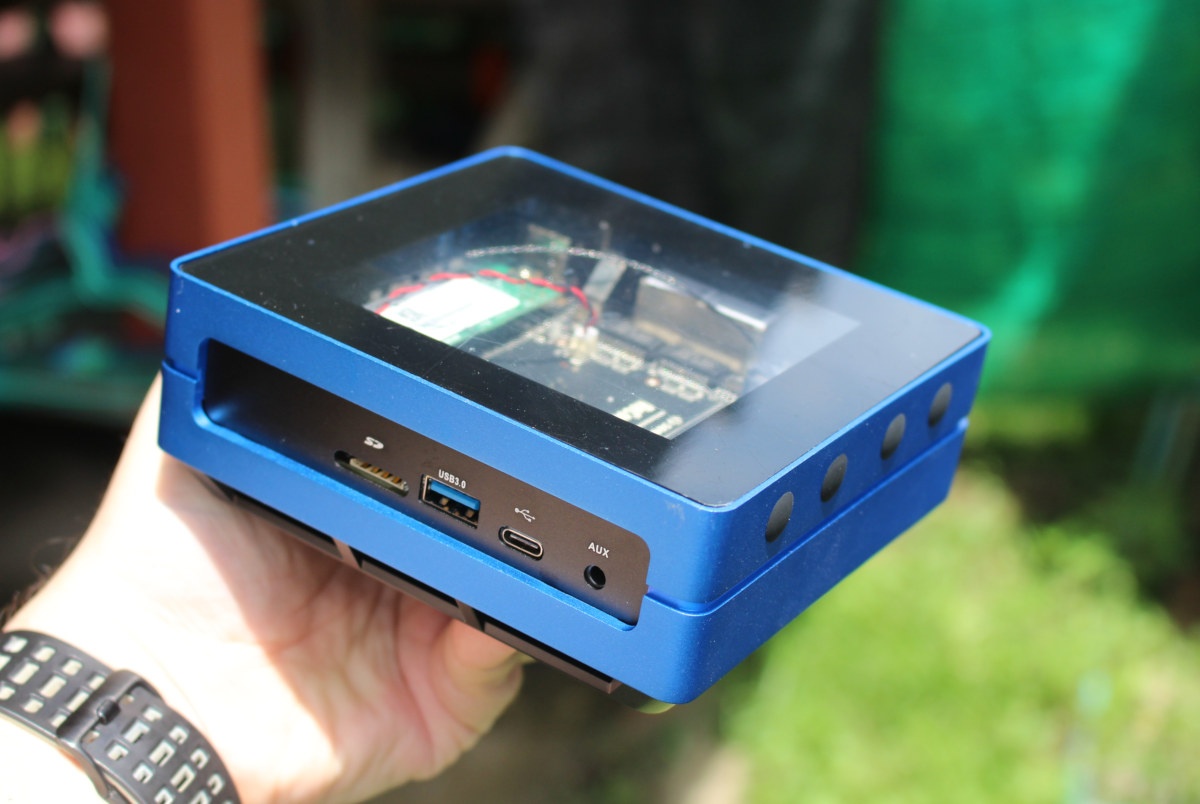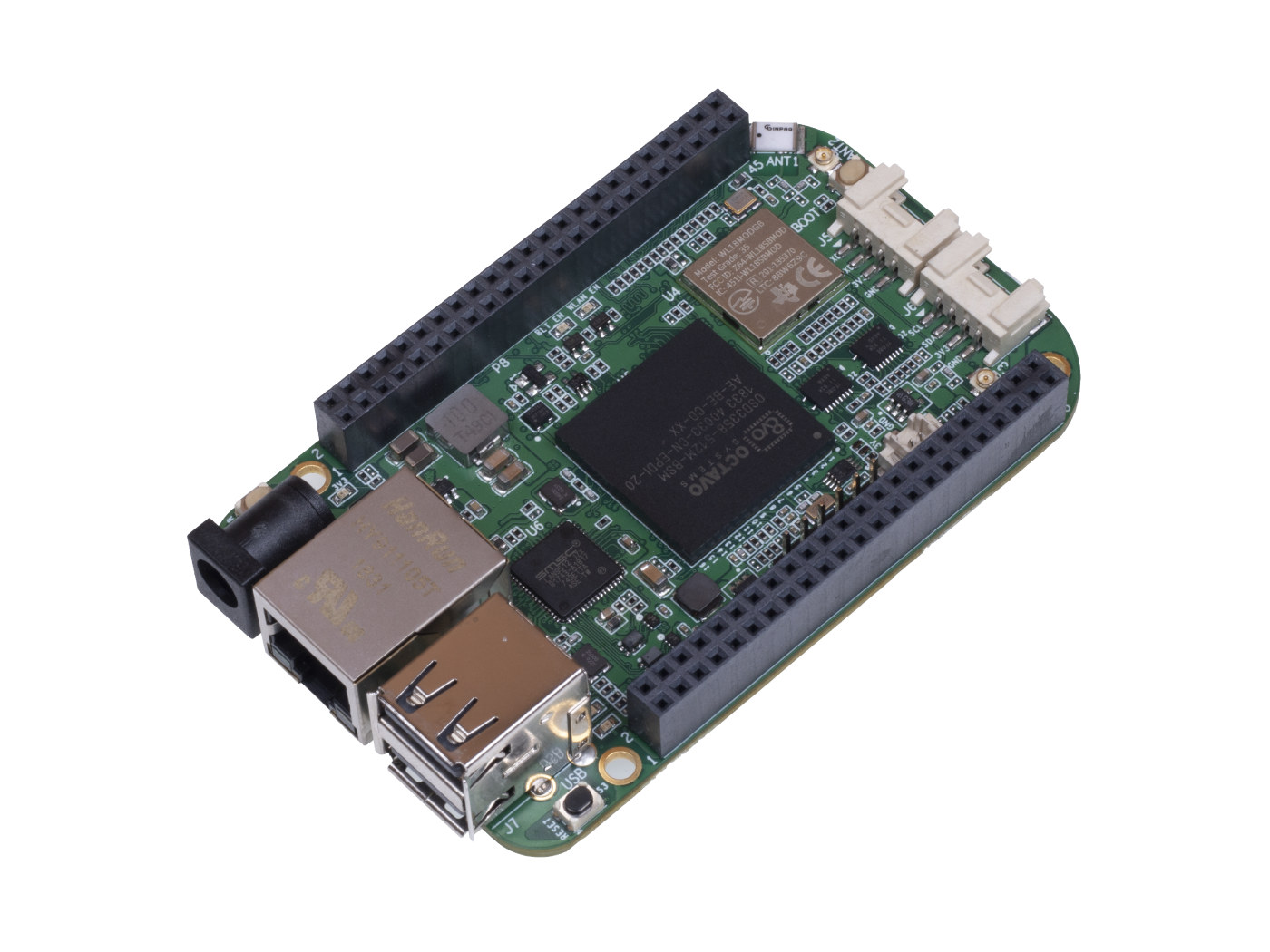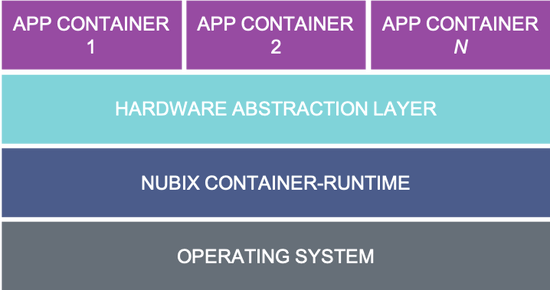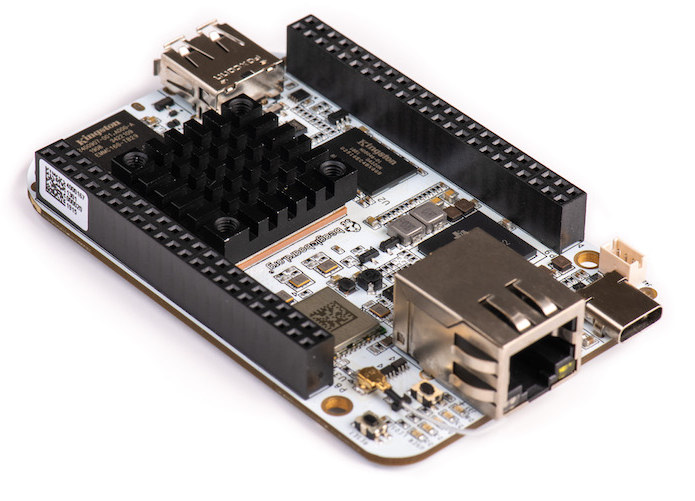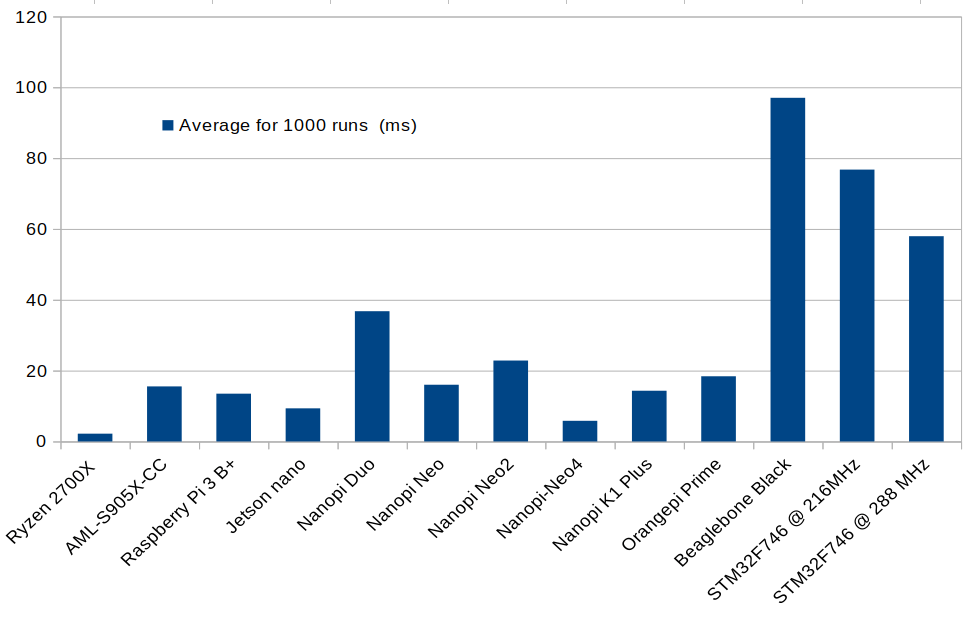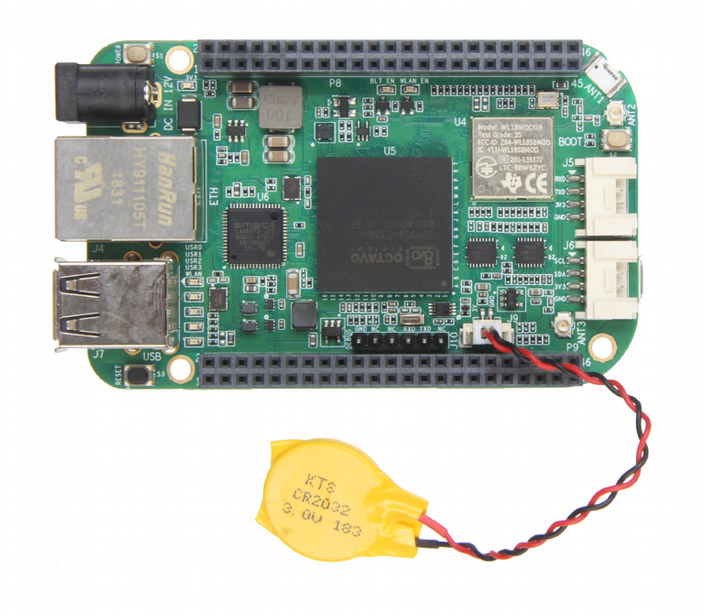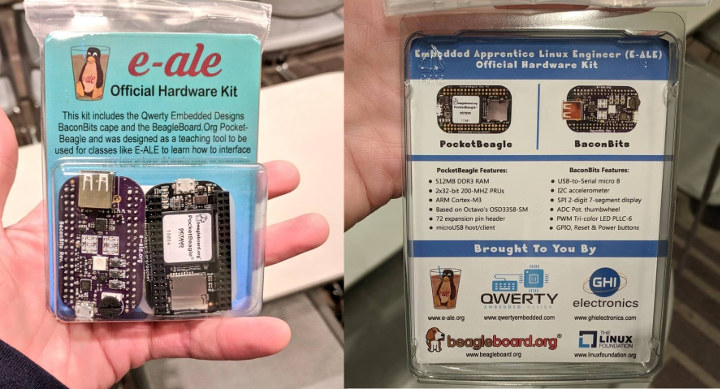Seeed Studio ODYSSEY-X86J4105 is an Intel Celeron J4105 Gemini Lake SBC that also happens to integrate an Arduino compatible Microchip SAMD21 Arm Cortex M0+ microcontroller that makes it suitable as an all-in-one Arduino platform. But it can do much more with 8GB RAM, an optional 64GB eMMC flash, HDMI & USB-C DisplayPort 4K video outputs, dual Gigabit Ethernet, and support for both SATA and NVMe storage. The board runs Windows 10 Enterprise by default (if you purchase the board with an eMMC flash), and supports Linux distributions as well. Seeed Studio sent me a review sample, so I’ll start by checking out the hardware first. ODYSSEY-X86J4105 Unboxing I received ODYSSEY-X86J4105864 with a built-in 64GB eMMC flash pre-loaded with Windows 10 Enterprise. Let’s have a quick look at the board with USB, Ethernet and video output ports previously described, as well as built-in dual-band Wi-Fi 5 & Bluetooth 5.0 module, and […]
BeagleBone Green Gateway SBC with Ethernet, WiFi, and Bluetooth Launched for $60
BeagleBone Green Gateway SBC was first unveiled last July as an update to BeagleBone Green Wireless board with Ethernet, and Octavo Systems OSD3358 SiP along with some smaller changes like support for 12V power supply and I2C RTC + battery. The board did however lose two USB 2.0 ports to make space for the Ethernet connector. The board was not quite available at the time, but the good news is that you can now buy BeagleBone Green Gateway for $59.99 on Seeed Studio. Specifications have remained the same as the ones provided for the initial announcement: SiP – Octavo Systems OSD3358 with Texas Instruments AM3358 Arm Cortex-A8 processor @ 1.0 GHz, 2×32-bit 200-MHz programmable real-time units (PRUs), 3D graphics accelerator, 512MB DDR3 SDRAM, 4KB EEPROM, and integrated power management Storage – 4GB 8-bit eMMC on-board flash storage (Kington) + microSD socket Connectivity 10/100Mbps Ethernet (RJ45) WiFi 802.11 b/g/n 2.4GHz + […]
Nubix Edge-native Tiny Containers for IoT Apps Released For Raspberry Pi and BeagleBone SBCs
Nubix has just launched the developer edition of its edge-native tiny containers for IoT application development and analytics that target microcontrollers and single-board computers such as Raspberry Pi 3/4 and BeagleBone Black. Typical cloud solutions such as Docker are often too large with tiny IoT devices, and to solve these issues, Nubix tiny containers are sized in kilobytes, instead of megabytes, or about 100 times smaller than a Docker container, in order to be small enough to run at the edge. Nubix.io provides access to a library of sensors, analytics and tiny services that leverage open source languages and pre-packaged functions to easily create IoT applications in a few minutes. Analytics is commonly done in the cloud, which may cause issues in environments with limited or intermittent connectivity, so to solve this issue, Nubix provides analytics functionality directly on the IoT device, eliminating the latency, bandwidth, connectivity and cost constraints […]
$118 BeagleBone-AI SBC is Made for AI Edge Applications
The BeagleBoard.org Foundation introduced BeagleBone-AI SBC at Embedded World 2019 last February. The board is specifically designed for artificial intelligence workloads at the edge thanks to Texas Instruments AM5729 dual-core Cortex-A15 processor that embeds a dual-core C66x DSP, and 4 EVE (Embedded Vision Engine) cores. The BeagleBone Black compatible board was not available at the time, but the Foundation has now formally launched the board, and you can buy BeagleBone-AI for $118 and up with heatsink and antenna on sites such as Mouser, OKdo, or Newark. BeagleBone-AI full specifications have now been published: SoC – TI Sitara AM5729 with Dual-core Cortex-A15 processor @ 1.5 GHz 2x dual-core PRUs 2x Cortex-M4 real-time cores dual core C66x VLIW DSP 4x EVEs 2.5MB of on-chip L3 RAM VA-HD subsystem with support for 4K at 15fps H.264 encode/decode and other codecs at 1080p60 Vivante GC320 2D graphics accelerator Dual-Core PowerVR SGX544 3D GPU System […]
TensorFlow Lite for Microcontrollers Benchmarked on Linux SBCs
Dimitris Tassopoulos (Dimtass) decided to learn more about machine learning for embedded systems now that the technology is more mature, and wrote a series of five posts documenting his experience with low-end hardware such as STM32 Bluepill board, Arduino UNO, or ESP8266-12E module starting with simple NN examples, before moving to TensorFlow Lite for microcontrollers. Dimitris recently followed up his latest “stupid project” (that’s the name of his blog, not being demeaning here :)) by running and benchmarking TensorFlow Lite for microcontrollers on various Linux SBC. But why? you might ask. Dimitris tried to build tflite C++ API designed for Linux, but found it was hard to build, and no pre-built binary are available except for x86_64. He had no such issues with tflite-micro API, even though it’s really meant for baremetal MCU platforms. Let’s get straight to the results which also include a Ryzen platform, probably a laptop, for […]
BeagleBone Green Gateway SBC Adds Octavo OSD3358 SiP, Ethernet, and a DC Jack
BeagleBone Green Wireless was launched in 2016 as an alternative to the official BeagleBone Green with WiFi & Bluetooth connectivity, and some extra USB ports meaning the Ethernet port had to go. The Linux SBC was based on Texas Instruments Sitara AM3358 processor and a 512 MB RAM chip. Seeed Studio has been working on an update of the board named BeagleBone Green Gateway that combines the processor, the RAM chip, and more components into one thanks to Octavo Systems OSD3358 SiP. The new board also adds Ethernet, a DC jack for power instead of just relying on micro USB, and an I2C RTC chip and battery. BeagleBone Green Gateway specifications with changes highlighted in bold: SiP – Octavo Systems OSD3358 with Texas Instruments AM3358 Arm Cortex-A8 processor @ 1.0 GHz, 2×32-bit 200-MHz programmable real-time units (PRUs), 3D graphics accelerator, 512MB DDR3 SDRAM, 4KB EEPROM, and integrated power management Storage […]
E-ALE is a Free & Open Source Linux Training Program for Embedded Engineers
As I wrote about the Embedded Linux Conference 2019 schedule a few days ago, I found out one of talk planned to use E-ALE hardware kit for the session. I had never heard about this kit, but a quick search led me to e-ale.org website which explains E-ALE stands for Embedded Apprentice Linux Engineer. The training program is made for embedded engineers with experience designing firmware for microcontrollers, but now need to transition to embedded Linux. Training only happens in-person (no webinar) at existing Embedded Linux conferences and is comprised of 8 to 9 seminars over 2 to 3 days. It usually starts with a presentation on one subject, followed by lab time to practice the relevant learned skills. The training takes place on the E-ALE kit at each conference, but it does not refer to a specific hardware platform. In most conferences, the PocketBeagle and BaconBits add-on board are […]
FOSSASIA 2019 Schedule – March 14-17
As its name implies, FOSSASIA is a Free and Open Source Software event taking place every year in Asia, more specifically in Singapore. I first discovered it last year, and published a virtual FOSSASIA 2018 schedule last year to give an idea about the subjects discussed at the event. It turns out FOSSASIA 2019 is coming really soon, as in tomorrow, so I’m a bit late, but I’ll still had a look at the schedule and made my own for the 4-day event. Thursday – March 14, 2019 10:05 – 10:25 – For Your Eyes Only: Betrusted & the Case for Trusted I/O by Bunnie Huang, CTO Chibitronics Security vulnerabilities are almost a fact of life. This is why system vendors are increasingly relying on physically separate chips to handle sensitive data. Unfortunately, private keys are not the same as your private matters. Exploits on your local device still have […]


